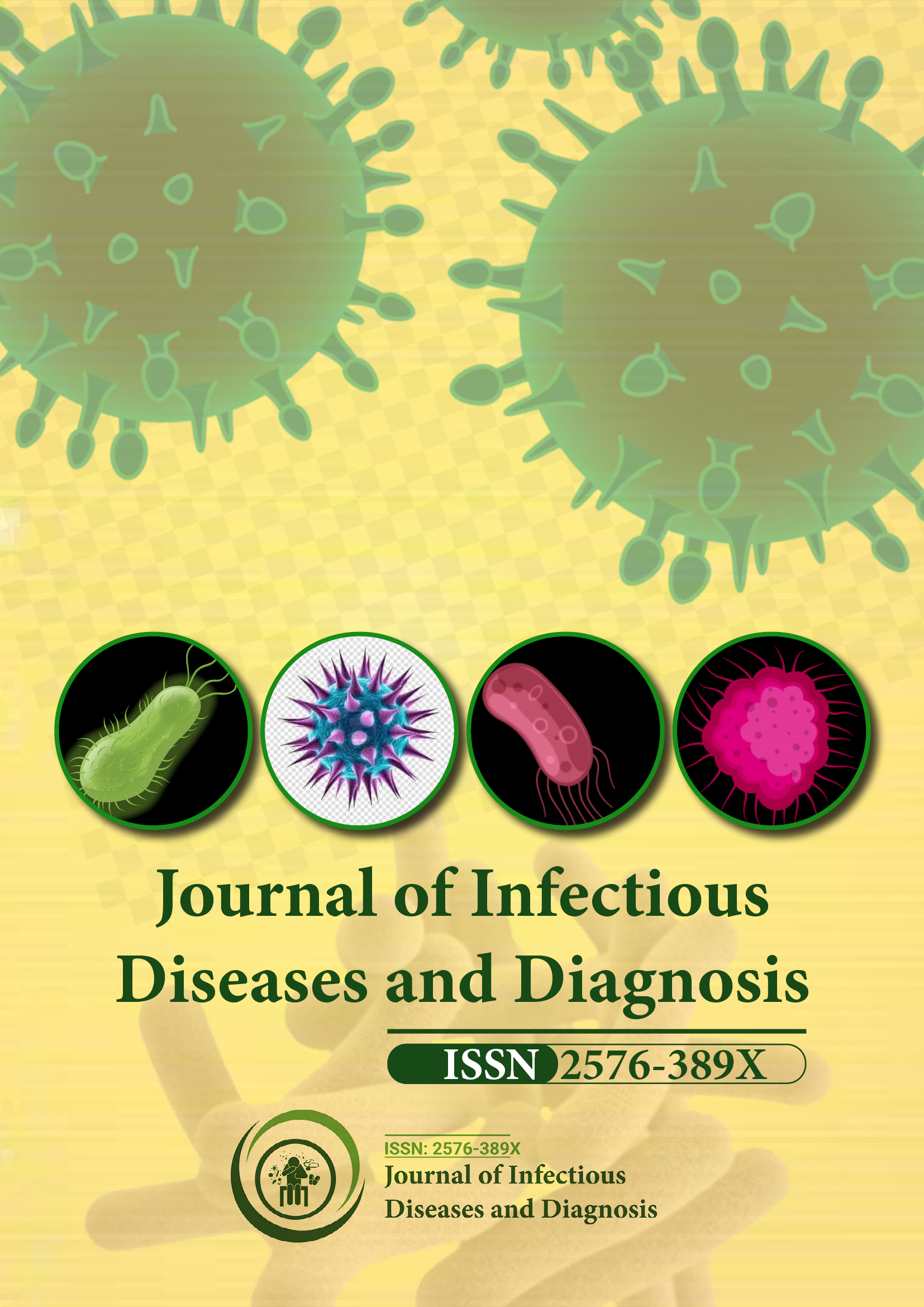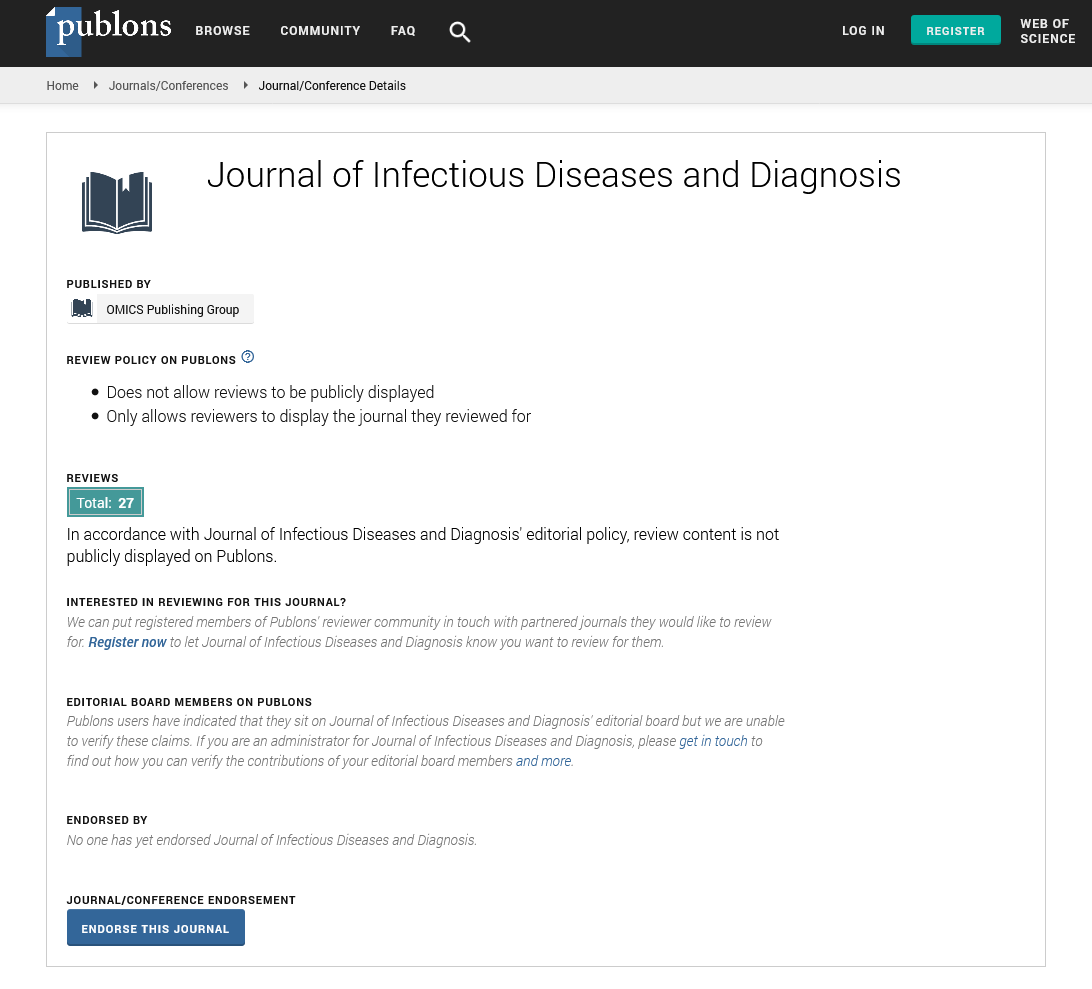Indexed In
- RefSeek
- Hamdard University
- EBSCO A-Z
- Publons
- Euro Pub
- Google Scholar
Useful Links
Share This Page
Journal Flyer

Open Access Journals
- Agri and Aquaculture
- Biochemistry
- Bioinformatics & Systems Biology
- Business & Management
- Chemistry
- Clinical Sciences
- Engineering
- Food & Nutrition
- General Science
- Genetics & Molecular Biology
- Immunology & Microbiology
- Medical Sciences
- Neuroscience & Psychology
- Nursing & Health Care
- Pharmaceutical Sciences
Perspective - (2022) Volume 7, Issue 5
A CD4+ T Cells Plays an Impact in Tertiary Flavivirus Infection
Jingjing Zhao*Received: 02-Sep-2022, Manuscript No. JIDD-22-18510; Editor assigned: 06-Sep-2022, Pre QC No. JIDD-22-18510 (PQ); Reviewed: 20-Sep-2022, QC No. JIDD-22-18510; Revised: 27-Sep-2022, Manuscript No. JIDD-22-18510 (R); Published: 04-Oct-2022, DOI: 10.35248/2576-389X.22.07.185
About the Study
Flaviviruses, which include Dengue Virus (DENV) and Zika Virus (ZIKV), are arthropod-borne viruses that cause mild to severe diseases in humans around the world. These Flaviviridae family members are primarily transmitted through the bite of Aedes spp. mosquitos, posing a massive public health burden in tropical and subtropical areas. While ZIKV transmission has declined in recent years, its initial emergence into DENVendemic regions of the western hemisphere caused concern, owing to immunological cross-reactivity limiting serological testing and the implications for the development of severe manifestations in populations exposed to sequential infections. While ZIKV has a single serotype, DENV has four serotypes based on antigenic differences in the envelope protein, all of which are pathogenic in humans. After secondary homotypic infection, exposure to one infecting serotype should provide lifelong protection against disease. However, heterologous DENV infection can cause dengue or severe dengue, also known as hemorrhagic fever or shock syndrome. ZIKV cases, on the other hand, are generally self-limiting febrile illnesses like dengue fever, but ZIKV has been linked to more serious outcomes like Guillain-Barre Syndrome (GBS) and birth defects.
There was little DENV transmission in the Americas during the peak of the ZIKV epidemic in 2016. This has been linked to the high level of cross-reactivity between DENV and ZIKV 18 antibodies and T cells. In immune deficient mice and human infections, the role of cellular immune responses in mediating clearance of subsequent DENV or ZIKV infections has been extensively studied, highlighting the importance of DENV and ZIKV-specific CD8+ T cells against homotypic infections. Similarly, CD4+ T cells have been shown to be important in flavivirus infections, displaying functional plasticity and exerting cytotoxic properties in response to previous infections, thereby contributing to protection. Recently, provided a detailed dissection of the balance between protection and harm in response to primary or secondary dengue infections based on T cell phenotype. Previously, our group discovered that crossprotection is linked to the time between DENV and ZIKV infections and is mediated by cellular immune responses, specifically CD4+ T cells. In the context of primary and secondary flavivirus infections, their role ranges from being polarized to a T helper 1 cell and assisting B cells in the Germinal Centre (GC) to CD4-restricted HLAs associated with less severe infection outcome, expansion of T follicular cells promoting DENV-specific antibodies and cytotoxic subpopulations as a result of re-exposures. Detailed characterization of the humoral immune response maturation during secondary infections or vaccinations suggests that during secondary flavivirus exposure, the GC reaction, in which CD4+ T cells play a critical role in naive B cell activation and immunoglobulin switching, may not be required for an optimal secondary immune response. Other studies have confirmed the role of Memory B Cells (MBC) and MBC-derived plasma blasts in the humoral immune response more than naive B cell activation during secondary flavivirus infections, while emphasizing the importance of cross-reactive CD4+ T cells.
Despite these advances, the changes in the functional quality of flavivirus-induced antibodies during immune recall responses are still poorly understood. Furthermore, the role of CD4+ T cells in controlling flaviviral replication by generating poly functional responses, as well as the quality of antibodies produced by tertiary infections in flavivirus-experienced humans or Non- Human Primates (NHPs), is largely unknown. NHP models offer benefits such as human-like immune responses and control over external factors such as injection method, amount of viral inoculum administered, and infection timing. Furthermore, their competent immune system is similar to that of humans, which is critical for understanding the processes that drive disease development and has been widely used to study DENV and ZIKV responses. Our group used this model to provide the first evidence that prior DENV immunity is beneficial against ZIKV infection, which was later confirmed by two other groups. These NHP findings on the limited impact of pre-existing dengue immunity on ZIKV infection outcomes were confirmed in humans first, and then by other groups.
To fill knowledge gaps about the role of CD4+ T cells and the impact of flavivirus priming in sequential infections, we conducted a longitudinal study on adaptive immune responses. In rhesus macaques, we investigated the role of CD4+ T cells in viral clearance and the production of a robust humoral response. However, prior to a third challenge, the absence of CD4+ T cells had no discernible effect in ZIKV-primed animals, which were then infected with two consecutive heterologous dengue infections.
Furthermore, plasma blast populations with delayed, impaired iso-type switching and reductions in antibody binding were observed in DENV-primed CD4-depleted cohorts during tertiary infections. Importantly, even in the context of a tertiary infection, DENV-primed CD4+ T cells are required for a robust humoral response against a heterotypic DENV infection. The role of CD4+ T cells in modulating the quantity and quality of the immune response was more limited in ZIKV-primed individuals, where DENV infections were consecutive, confirming implications of the order and timing of infections in the hierarchy of non-neutralizing and neutralizing antibody maturation and function.
Our findings suggest that CD4+ T cells influence the quantity, quality, and magnitude of the humoral immune response during tertiary infections. That contribution, however, is influenced by a number of factors, including the relatedness of the infecting viruses and the sequence and timing of infections, among others. To the best of our knowledge, this is the first study to look at the cross-immune response scenario in tertiary flavivirus infection with DENV and ZIKV. This study contributes to our understanding of the importance of cellular immune responses in flavivirus endemic areas, which has important implications for vaccine development.
Citation: Zhao J (2022) A CD4+ T Cells Plays an Impact in Tertiary Flavivirus Infection. J Infect Dis Diagn. 7:185.
Copyright: © 2022 Zhao J. This is an open-access article distributed under the terms of the Creative Commons Attribution License, which permits unrestricted use, distribution, and reproduction in any medium, provided the original author and source are credited.

